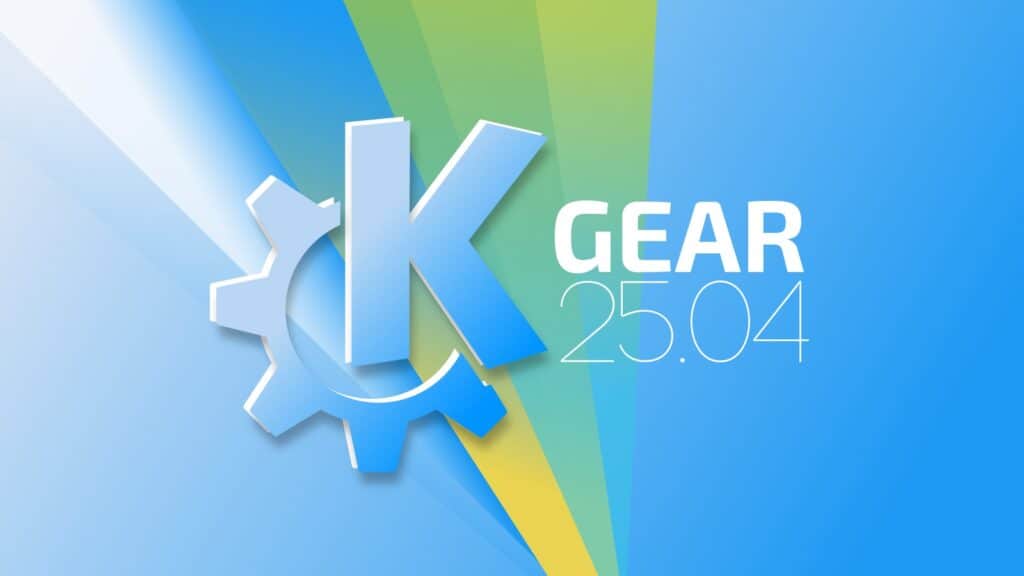Today, over a month after the last update to the 24.12 series, KDE has released the brand-new KDE Gear 25.04 apps collection, bringing a range of new features to the table.
We’ll start with Dolphin, KDE’s flagship file manager, which gets a thoughtful makeover. You’ll immediately notice a sprightly new icon. Under the hood, Dolphin enhances accessibility by integrating with Orca, Linux’s go‑to screen reader.
Moreover, focus behavior has been refined: clicking in the Places sidebar or invoking “Open Path” now behaves intuitively, and the revamped Selection mode lets you navigate with arrow keys and hit “Enter” to select, sidestepping the old “Ctrl‑key” gymnastics.
To prevent mishaps, the “Empty Trash” icon now glows red to signal danger, and the “Restore” option has been moved away from “Delete,” minimizing the chance of accidental data loss. Furthermore, right‑to‑left language support (think Arabic or Hebrew) has been introduced.
Subtle yet significant tweaks round out the update: tabs can now be renamed, custom icons appear in the Places panel, view buttons are consolidated into a tidy menu, and the status bar has been slimmed down to preserve more real estate for your files.
The Konqueror web browser also continues to evolve. The “Save As” dialog will now remember your last download location, so you won’t have to hunt through directories each time. It’s a small change, but one that keeps your workflow humming.
Across the network frontier, KRDC, KDE’s remote desktop client, gains the ability to scale down incoming desktops to fit its window, supports domain‑based authentication, and is now compatible with the latest FreeRDP protocol. And if you’re all about bridging your phone and PC, KDE Connect now delivers faster Bluetooth file transfers, letting you move photos, documents, and more without breaking a sweat.
On the travel‑planning front, Itinerary takes a big step forward by adding support for Bilkom and PKP PDF tickets, International Trenitalia barcodes, Booking.com in Danish, ticket emails for Universe events like Lollapalooza, and a variety of Eastern European providers.
Even better, a brand‑new “My Data” page lets you track loyalty programs, health certificates, saved locations, and travel statistics, with import/export functionality to keep everything in sync. The app’s timeline and search results have been redesigned to shine on small screens, while regional preferences ensure temperature ranges and speed units display correctly, whether you’re in Europe or the U.S.
Complementing this, Kongress—the go‑to for navigating conferences and summits—now lists speaker names next to each talk, so you can plan your agenda down to the minute.
Productivity enthusiasts will appreciate the latest Merkuro update, which lets you configure holiday regions across multiple areas, display holidays in both week and month views, filter tasks due today, and perform batch actions on selected contacts.
In the broader Kontact suite, KMail now automatically verifies unknown OpenPGP certificates by querying key servers, and KOrganizer debuts a slick new date picker that makes leaping to any date as simple as a single click.
Okular, KDE’s document viewer, steps up with PGP/GPG‑based digital signing support—an especially user‑friendly option since obtaining a PGP key is often easier than securing a S/MIME certificate. You can filter certificates to show only those qualified for higher‑level signatures, view signature details more clearly on mobile, and let Okular auto‑scale signature text fit snugly on the page.
Outside of signing, the viewer now permits custom default zoom levels and tidies up banner messages for a cleaner reading experience. For those juggling one-time passwords, Keysmith introduces QR code imports—including support for tokens from the now-unmaintained Authy app.
On the creativity front, Kdenlive, a cross-platform video editor, now supports the OpenTimelineIO format, allowing for seamless project exchanges with other OTIO-compatible editors. Its audio waveform viewer has been rewritten from the ground up, delivering twice the speed and greater accuracy. You can toggle a checkerboard background to preview transparent clips better.
Moreover, KWave sound editor’s playback engine receives a substantial performance upgrade, ensuring your audio edits proceed smoothly. But there’s more.
NeoChat refines your Matrix experience by allowing rooms to be sorted by most recent activity and adding a “Copy Link Address” option to message context menus.
Tokodon, KDE’s Mastodon client, finally lets you save drafts and schedule posts for later—even if your computer is turned off. It also brings content filters into the timeline view, hides tags and polls behind content notices, offers mute controls to silence unwanted conversations, displays confirmation dialogs to prevent accidental boosts, and nudges you to add alt text to images.
Performance enhancements and improved screen‑reader compatibility round out the list. Meanwhile, Falkon, KDE’s lightweight browser, gains a WebSocket‑blocking feature for additional privacy control.
Finally, developers will appreciate Kate’s newfound support for the debputy language server, which is handy when crafting Debian packages, as well as the ability to extend the PATH variable for custom linters and formatters. Its build plugin now handles multiple open projects without constant reloads, streamlining cross‑project workflows.
KDevelop, KDE’s full‑blown IDE, taps into the same LSP infrastructure via Kate’s plugins, bringing Language Server Protocol support alongside its robust C++, PHP, and Python tooling.
For more information, see the release notes. KDE Gear 25.04 apps collection tarballs can be downloaded from the source info page, as the full changelog provides a deeper dive into the update.
Most of the KDE Gear 25.04 apps will soon be available on Flathub and Snap Store. Rolling release distributions can expect the app collection in their respective distros’ repositories in the coming days and weeks.
